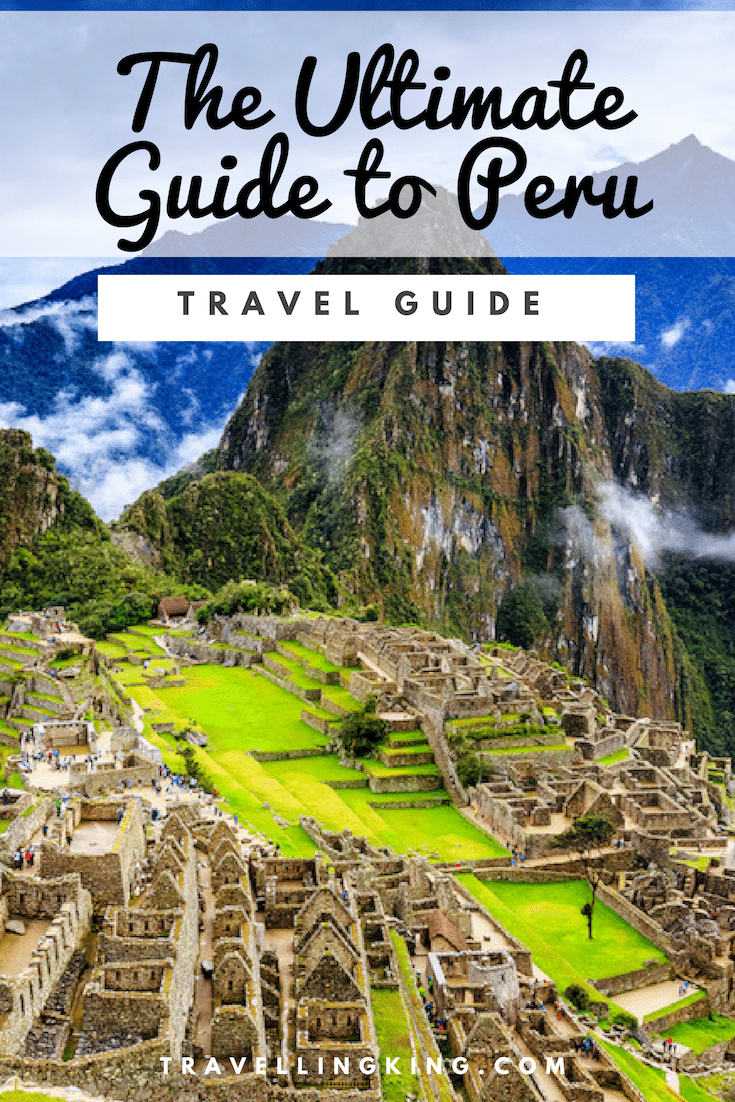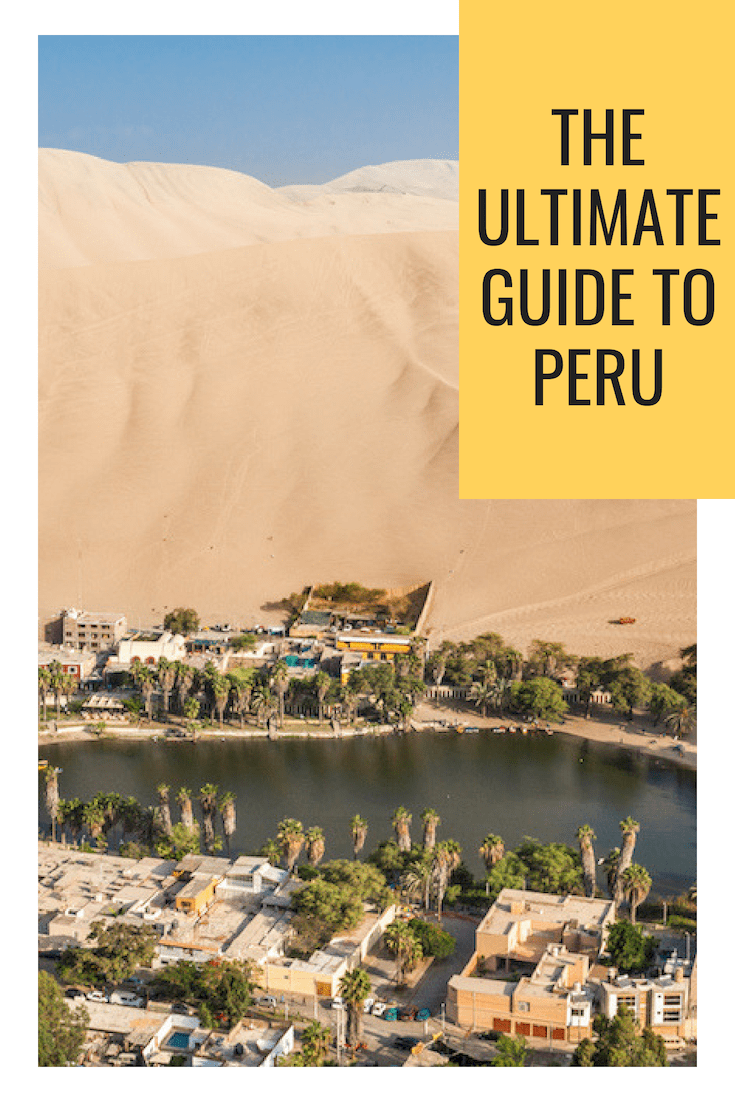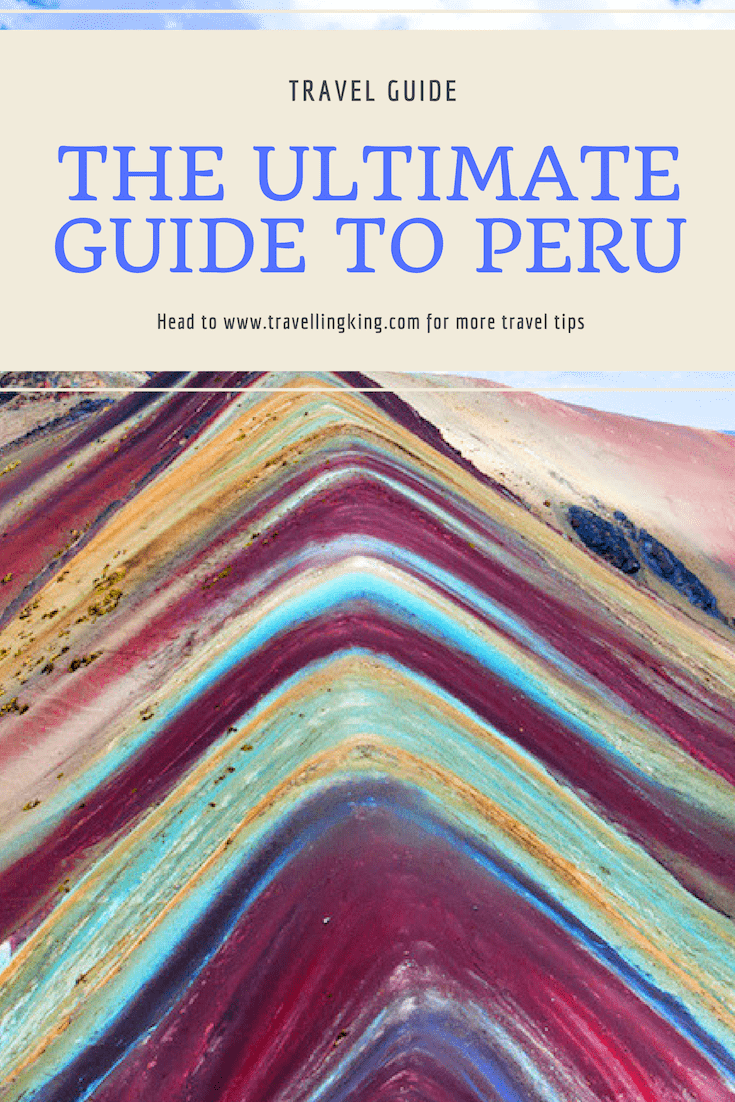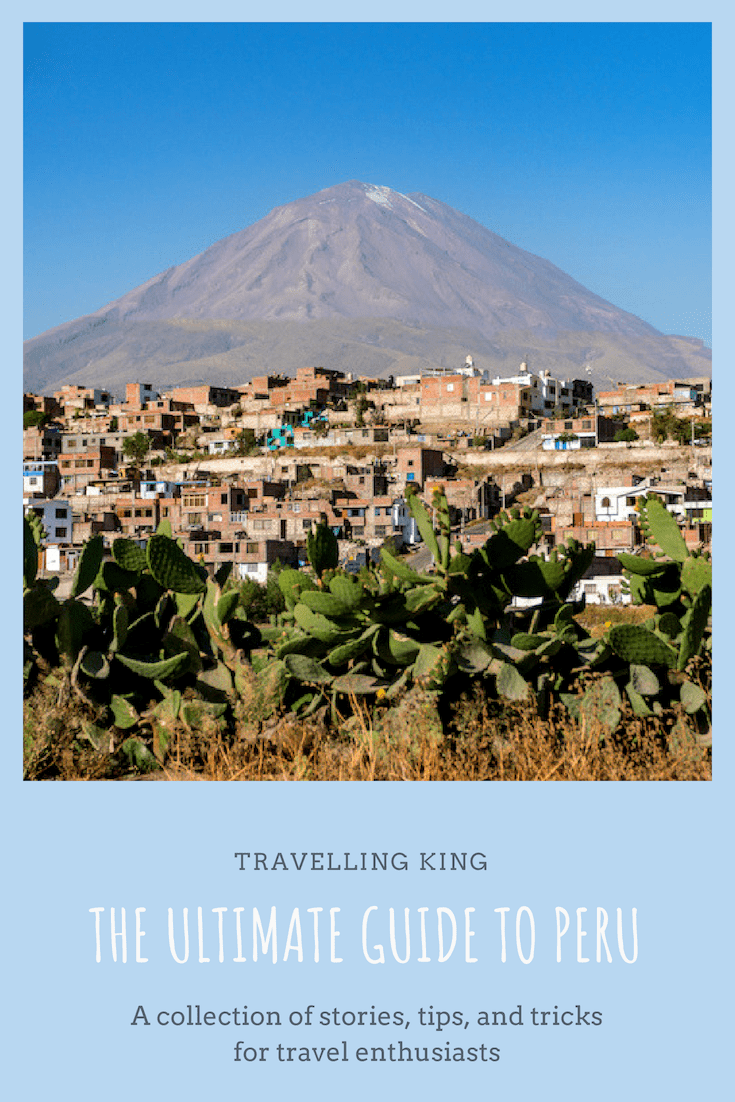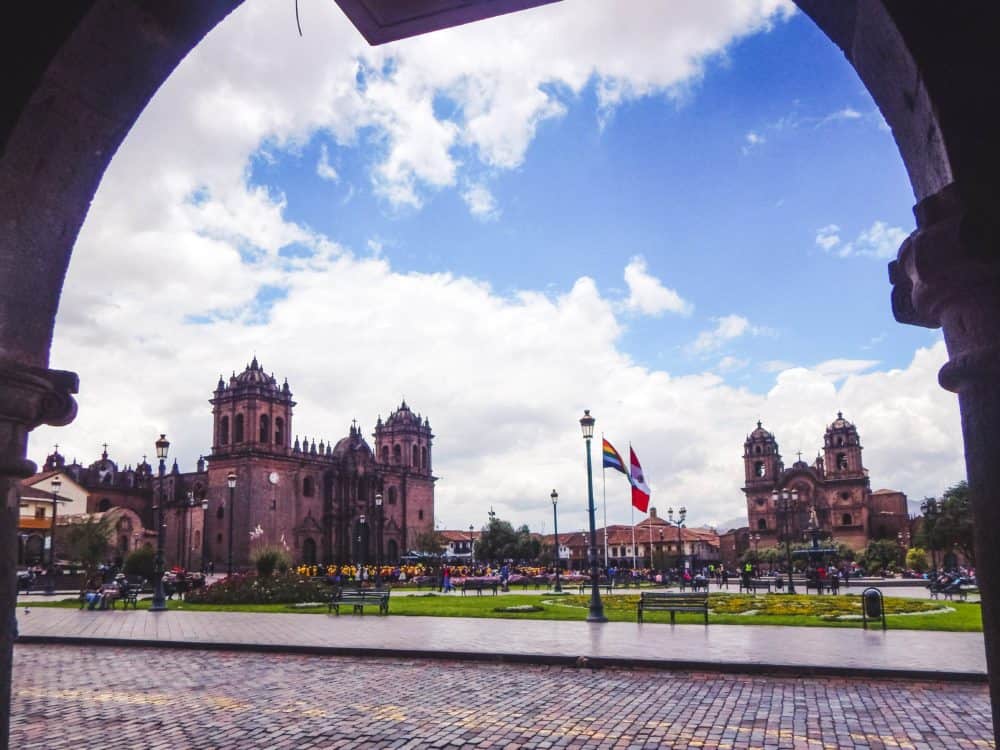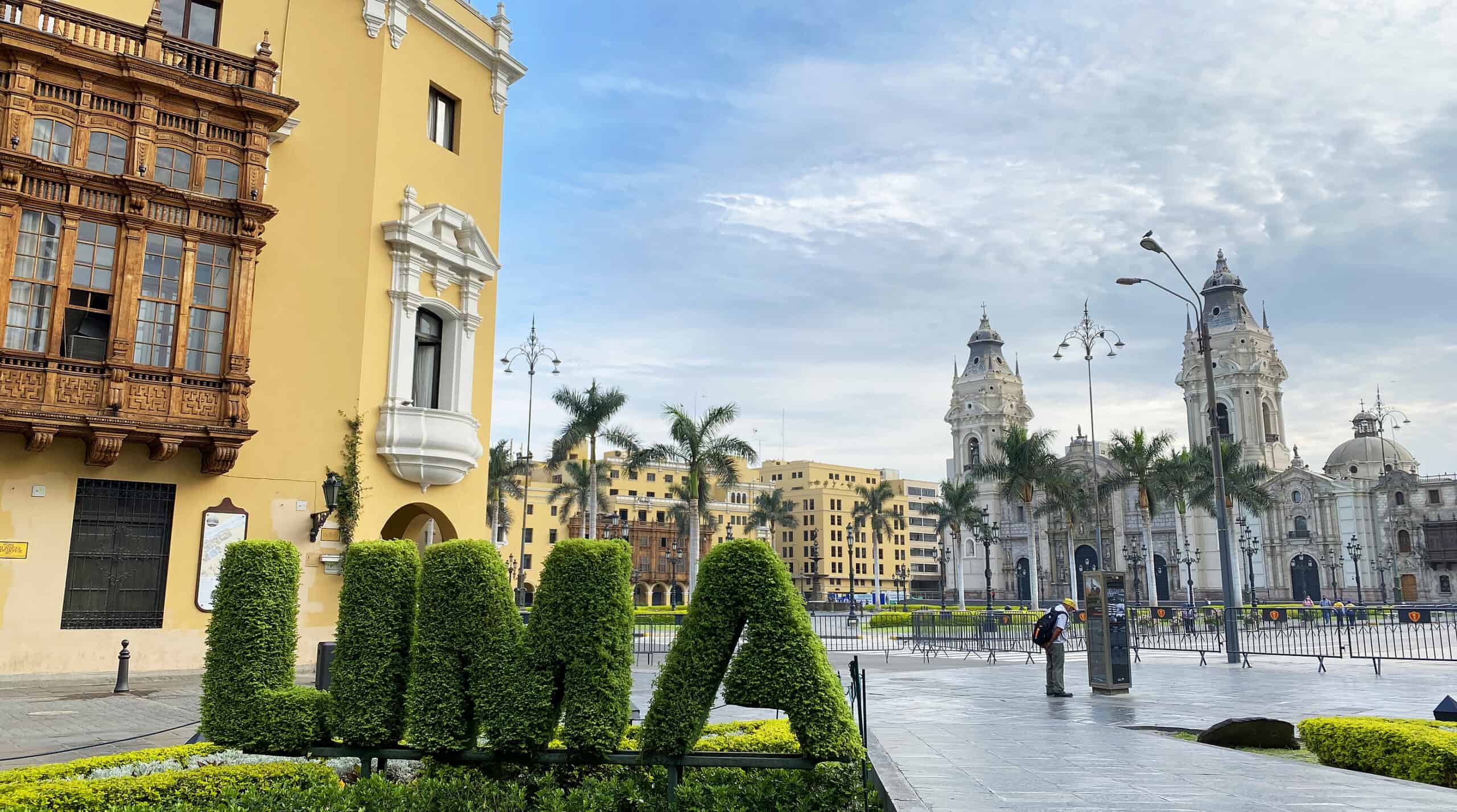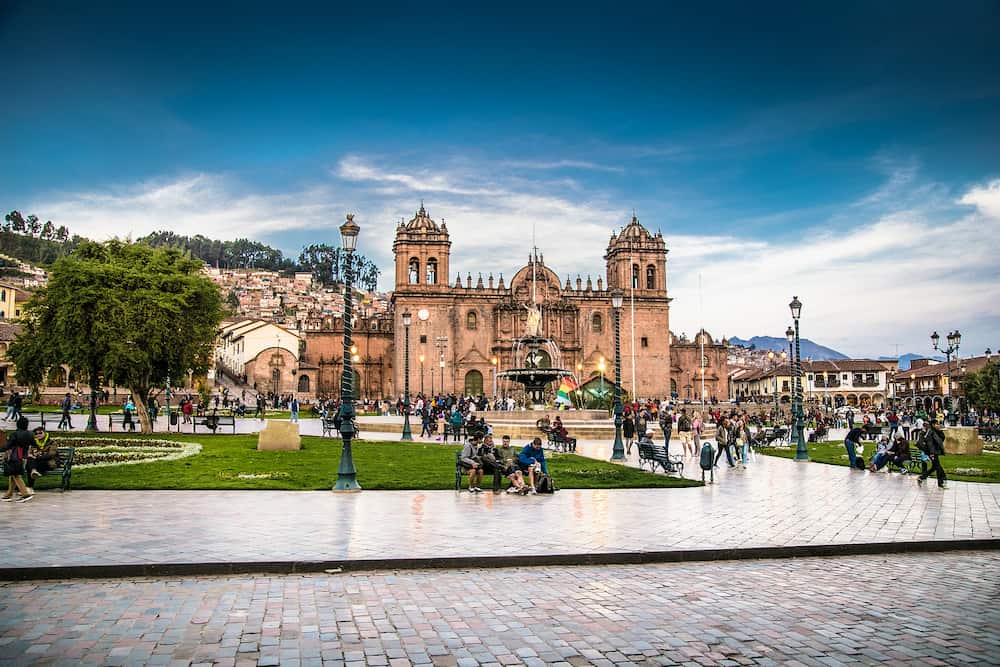The Ultimate Guide to Peru
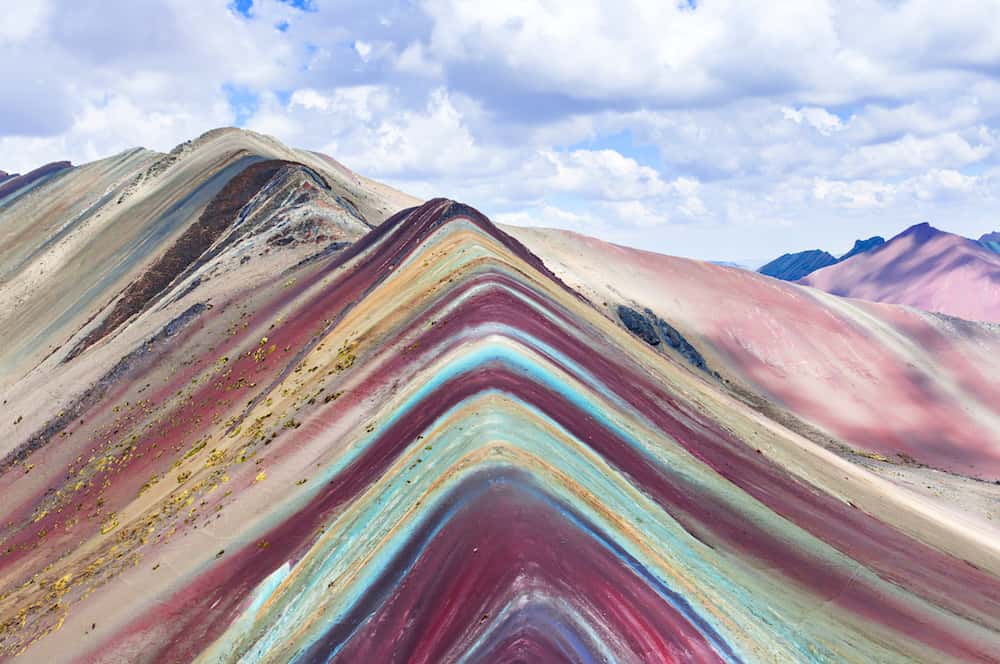
Peru is a dream destination for many, appealing to historians, artists, and backpackers alike. In this guide we will take you on the journey of a lifetime through the Peruvian highlands, the vast and expansive desert, hikes through Incan ruins and the Amazonian rainforest.
Discovering Peru could take an entire lifetime, but here we will give you the lowdown on how to create an unforgettable, once-in-a-lifetime trip to this incredible country.
Peru can be both a cheap and very expensive country to visit; you can budget from US $40 to $100 to day depending on whether you want to travel on the cheap or in style. Rooms in hostels start from around US $7 a day and food can be incredibly cheap, eating like a local will cost only a few dollars if you stick to set menus.
The most expensive thing to budget for is travel and tours; the train to Machu Picchu is quite pricey as is a plane ride over the Nazca lines. However, in general, the cost of transportation on buses is cheap, flights may save you time but will chip away at your budget.
The best tip to save money whilst travelling around Peru is to bargain as much as possible, pay for things with cash instead of credit card and keep small notes handy so that it will be easier to get change.
Plan your trip
Save on fees abroad with the Wise Card—use it at ATMs, restaurants, and for flights or hotels in over 150 countries. Manage 40+ currencies in real-time with the Wise app.
Need Help Planning?
- Cheap Flights: Find the best deals.
- Accommodation: From hostels to luxury stays.
- Car Rental: Affordable options worldwide.
- Sightseeing Tours: Explore without breaking the bank.
- Travel Adapter: One adapter for all your needs.
- Travel Insurance: Don’t risk it—stay covered.
This post includes affiliate links. Read my full disclosure and content policy.
How to get to Peru
The main airport for international travellers is the busy capital of Lima, a sprawling urban city that also has its dangerous neighbourhoods.
The most popular neighbourhood to stay in for tourists is Miraflores, which is an upmarket suburb with beaches, sea view promenades and shopping centres.
For those who wish to experience a more rustic side of Lima, Barranco is the place to stay. Lima’s bohemian neighbourhood is dotted with colourful houses clad in bougainvillea flowers with it’s community of artist and musicians and charming hole in the wall bars and restaurants.
There are also direct flights to Cusco from some countries.
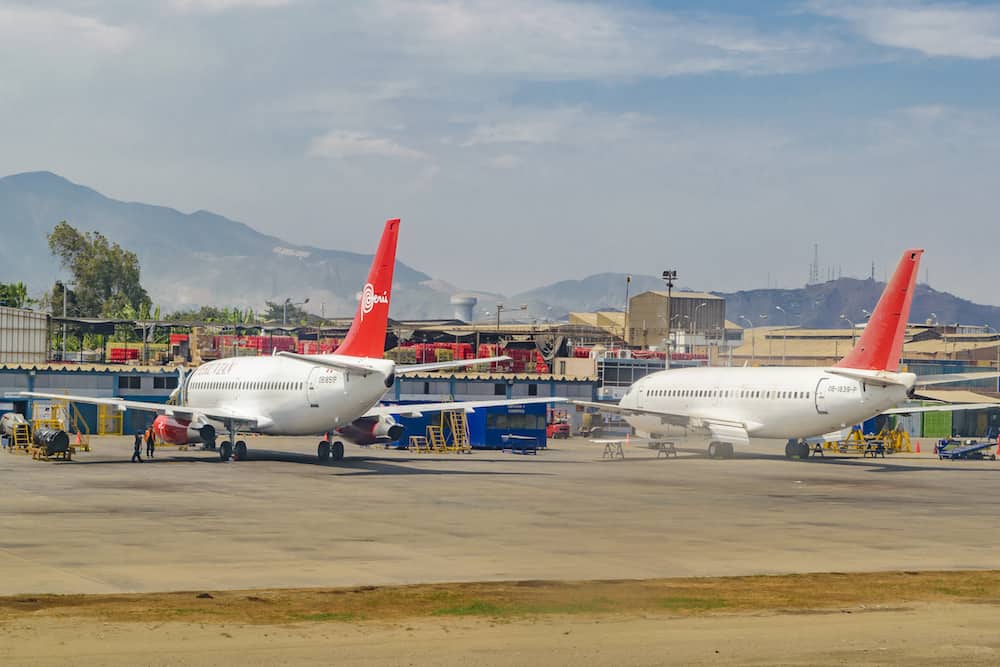
What to expect in Peru
Peru is best when organised with a lot of planning in advance planning, especially booking the entrance to Machu Picchu and Huayna Picchu, trains and planes which will also you cost significantly less if you plan your journey well in advance.
Also make sure that you plan for extra time and extra money, as often you will end up spending more than you budgeted for.
The language used around most of Peru is Spanish, however, many people in Peru don’t speak Spanish, and instead many people speak the native language of Quechua or other indigenous languages. English is widely spoken and understood in most tourist destinations and it should be relatively easy to find someone who speaks English who will be happy to assist you.
Prepare yourself for altitude sickness before you travel to Machu Picchu and take the time to acclimatise for a night or two in Cusco before heading there. Pharmacies offer altitude sickness medication and it is worth purchasing this before you get there.
Tipping is well received and be prepared to leave a tip when dining out or when you take a guided tour.
Also remember that voltage is higher in Peru, at 220 volts, and you may notice your phone charging faster than normal but also getting slightly hotter than normal. Remember to unplug your devices when they have finished charging to prevent overstressing the circuitry.
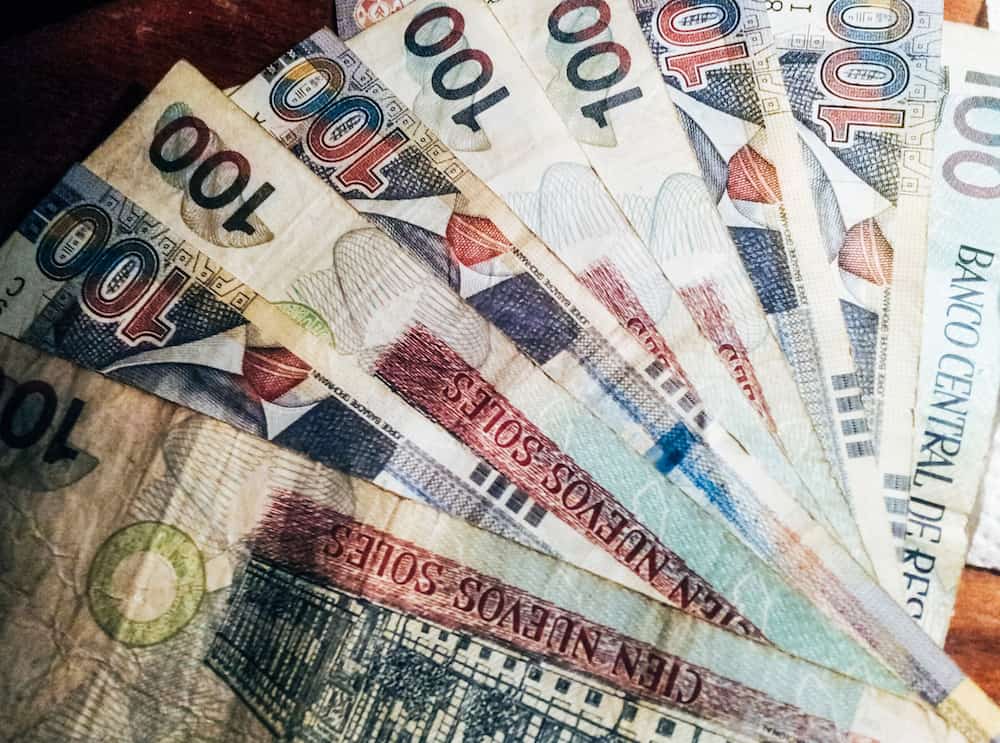
How to get around Peru
To avoid scams and dangers it is best to book your taxis via an app such as Easy Taxi, Uber or Taxi Beat. Lima is not the safest city for solo women travellers and its best to always go for a registered taxi booked in advance than to try and pick up taxis off the street. Be aware when choosing neighbourhoods to stay in, as some of them can be dangerous.
Buses are the cheapest way to get around Peru but if you’re short on time you may need to catch flights. The most expensive costs in Peru will be plane flights and tours.
You can’t visit Peru without seeing the spectacular Incan ruins of Machu Picchu. From Lima you can fly to Cusco, which is the gateway to Machu Picchu. The quickest way to get from Cusco to Machu Picchu is via Aguas Calientes, a small touristy town at the foot of the mountain.
The three and a half hour journey by train is breathtaking and there are three services to Aguas Calientes: Expedition, Vistadom and Belmond Hiram Bingham. The cheapest service to Machu Picchu is the Expedition train, which costs around $89 one-way.
The Vistadom offers panoramic views of the surrounding mountain landscape through large ceiling windows, the train is air-conditioned and comfortable. It costs around $102 one-way but is definitely worth the money.
Finally, you can travel in style on the Belmond Hiram Bingham train, which costs $389 upwards one-way. The train is decorated in the 1920s style and evokes the feeling of travelling in the past on the orient express. The price includes dinner and a tour of Machu Picchu.
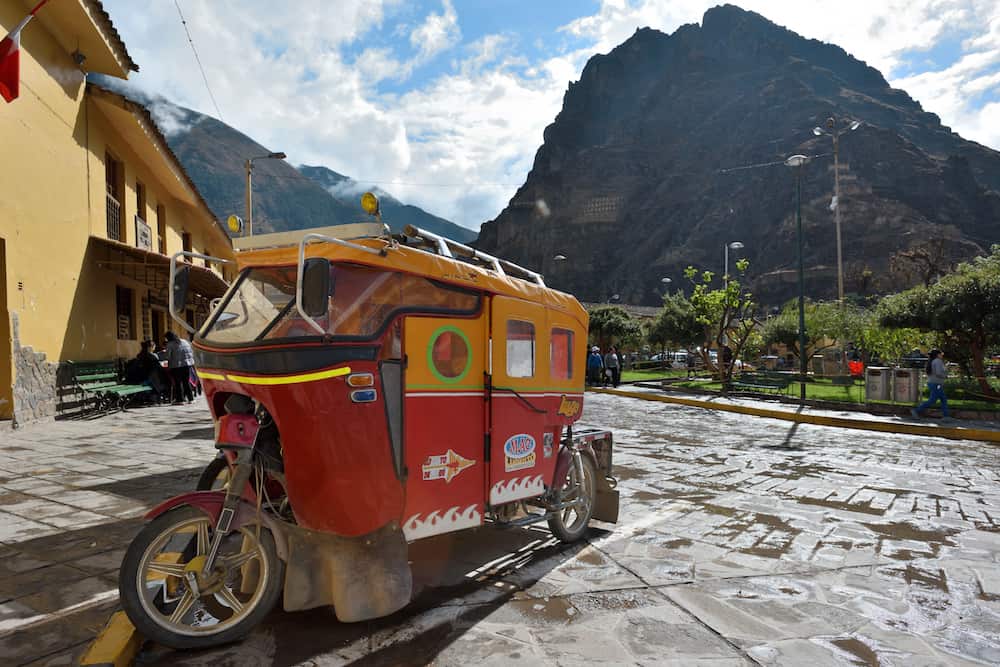
The best time to visit Peru
Peru only has two seasons, the dry season, which is from May to October and is the peak tourist season due to good weather; and the wet season, which is from November to April, though one of the most remarkable things about Peru is that more often than not the sky is a constant grey colour.
The best times to visit Peru is around October to April as it is best to avoid the busiest period of the year between July and August.
For the beaches and coastline it is best to visit between December and March and for visits to the Amazonian basin, June to September is highly recommended.
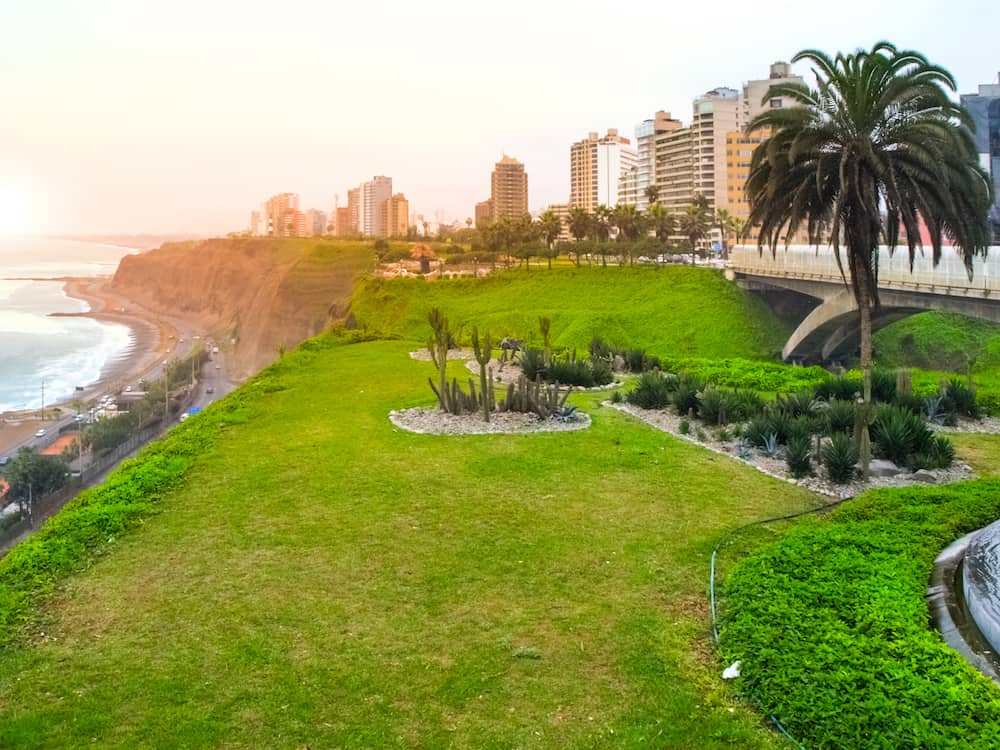
Where to stay in Peru
Peru can be a very economical location for the budget traveller. Hostels can cost around US $7 – 10 per day in the cities whilst the prices in small towns are often a little cheaper.
Check out the neighbourhoods to make sure that you are staying in a safe place. There are many budget hostels and four-star hotels as well as bed and breakfast or homestay options.
Plan your route in advance and look up the reviews for local hostels and hotels to better plan your trip. Planning in advance will make your trip run smoothly and save you money on accommodation!
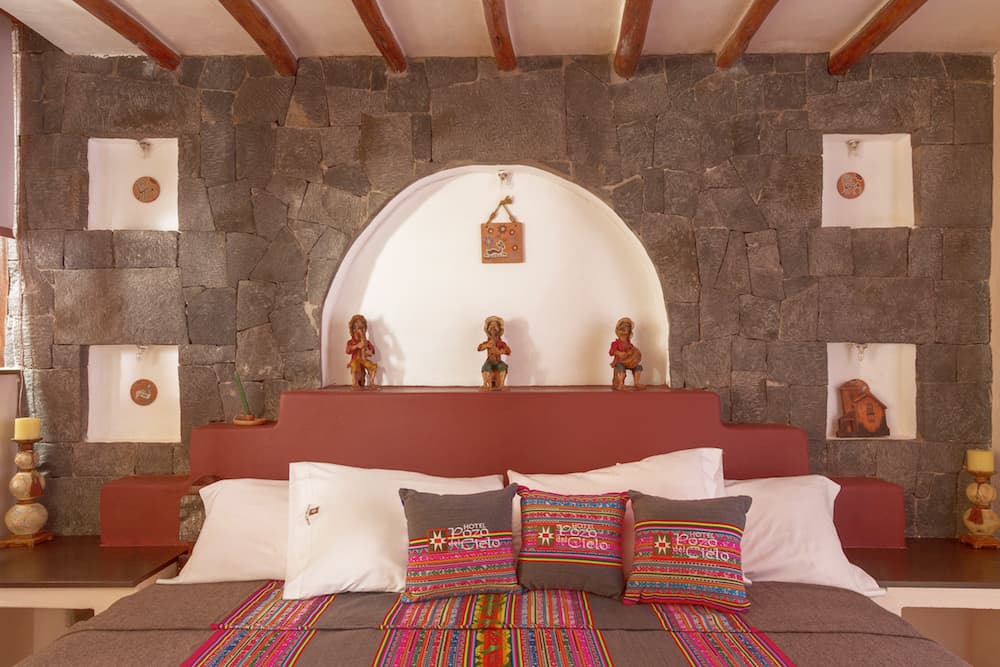
Things to do in Peru
- Visit Machu Picchu and take in the vistas of the valley from atop the Incan ruins.
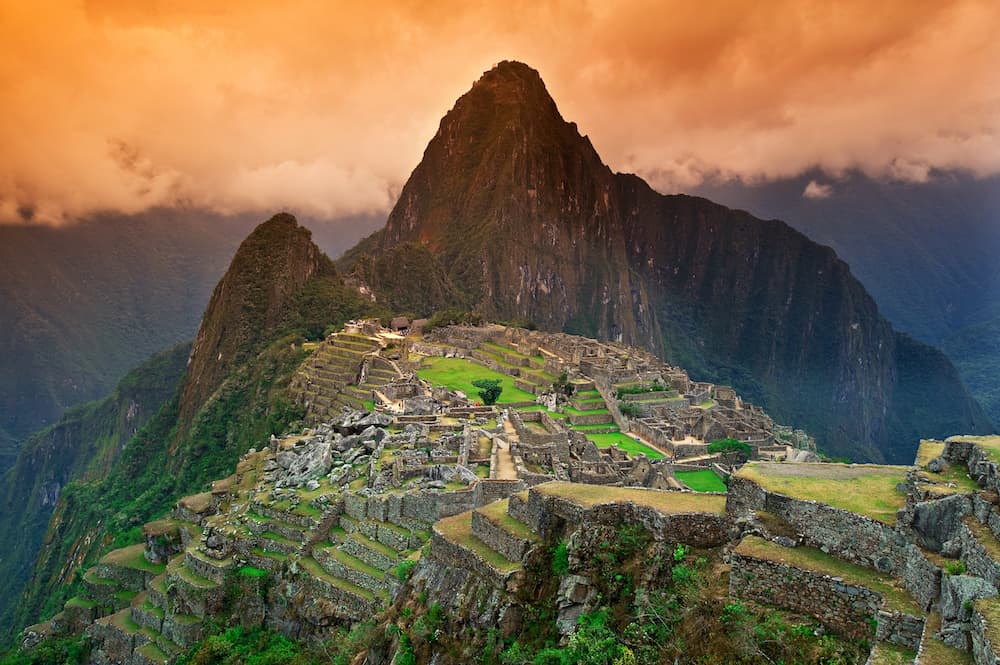
- Shop in the local markets and pick up beautiful Peruvian jewellery, llama wool scarves and clothing, colourful bags and artisanal handicrafts, but prepare to bargain!
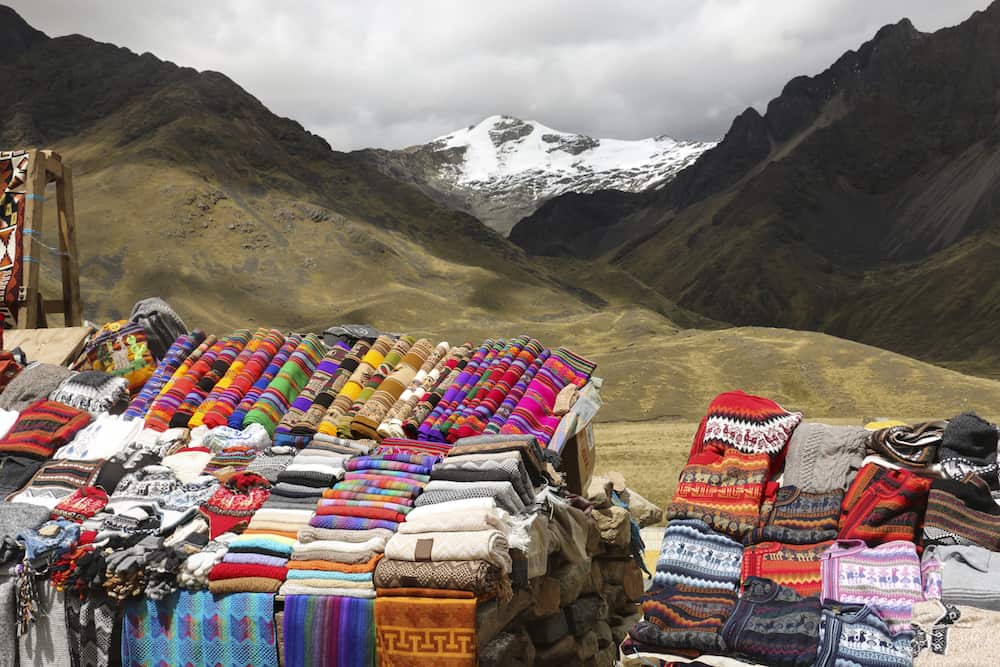
- Eat adventurously and savour the seafood, and most of all the diverse culinary offering of Peruvian food, ceviche, Nikkei (Japanese and Peruvian fusion) and Chifa (Chinese and Peruvian fusion) cuisine.
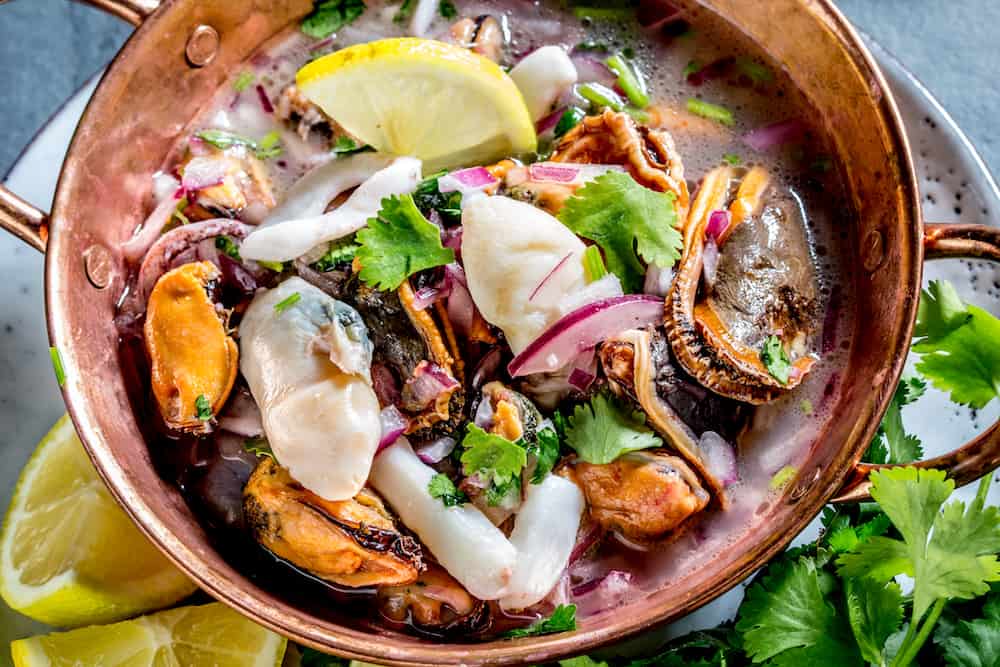
- Hike and climb the mountains, Peru is a paradise for nature lovers and trekkers. From Arequipa you can travel to volcano country, scaling heights of up to 4,900 meters and descending into the Colca Valley.
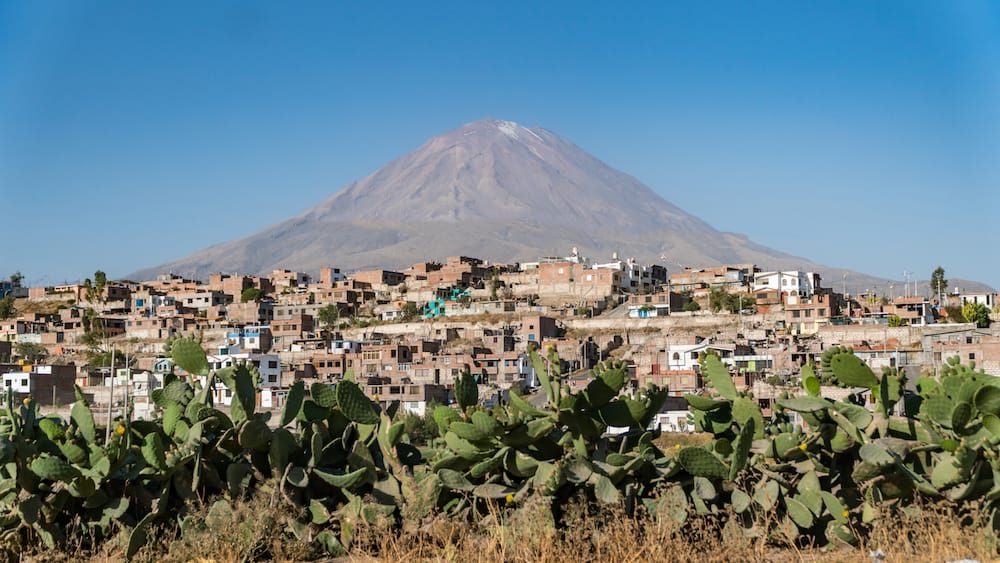
- Visit the Mountain town of Chivay, where you can relax in the natural hot springs and take in the dramatic landscape.
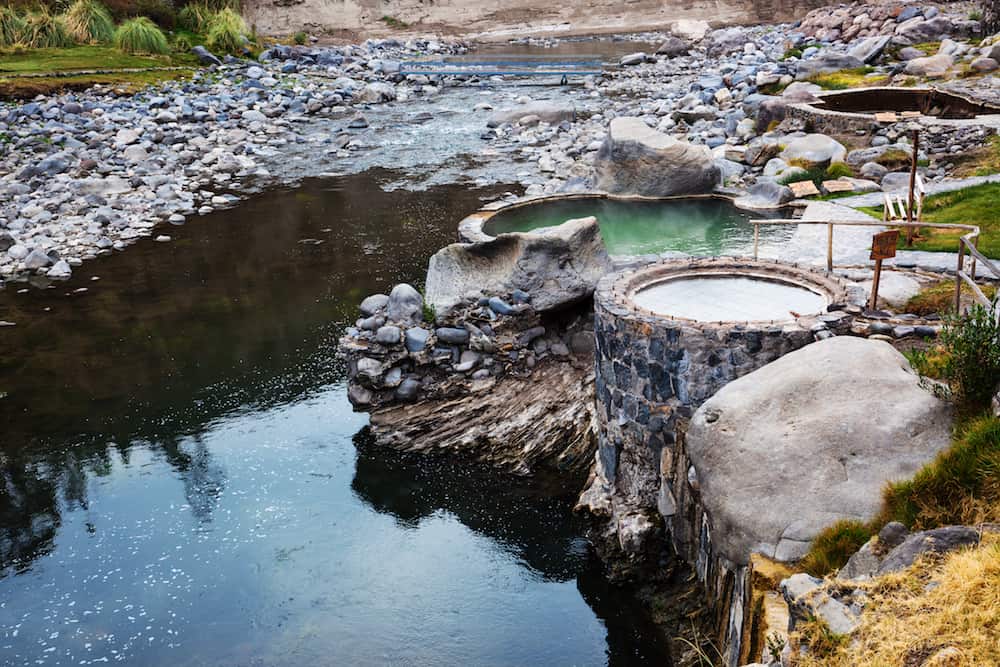
- Go sandboarding or take a dune buggy at the desert oasis of Huacachina, just outside of Ica.
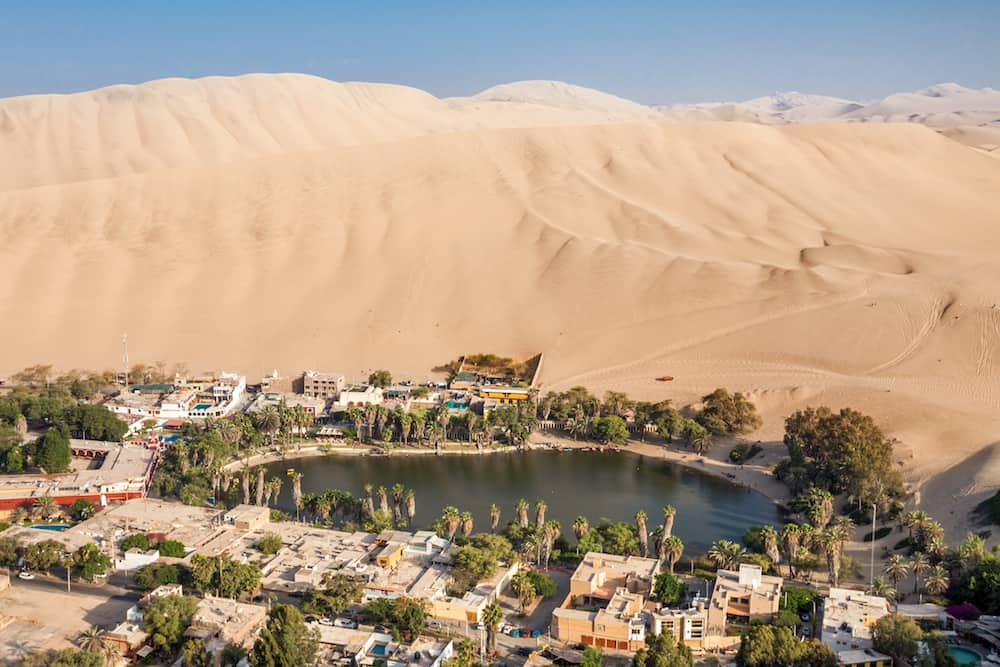
- Check out the wildlife of the Ballestas Islands, near Pisco, where you can take a boat tour and visit the island home of penguins, pelicans, cormorants, sea lions, turtles, dolphins and whales.
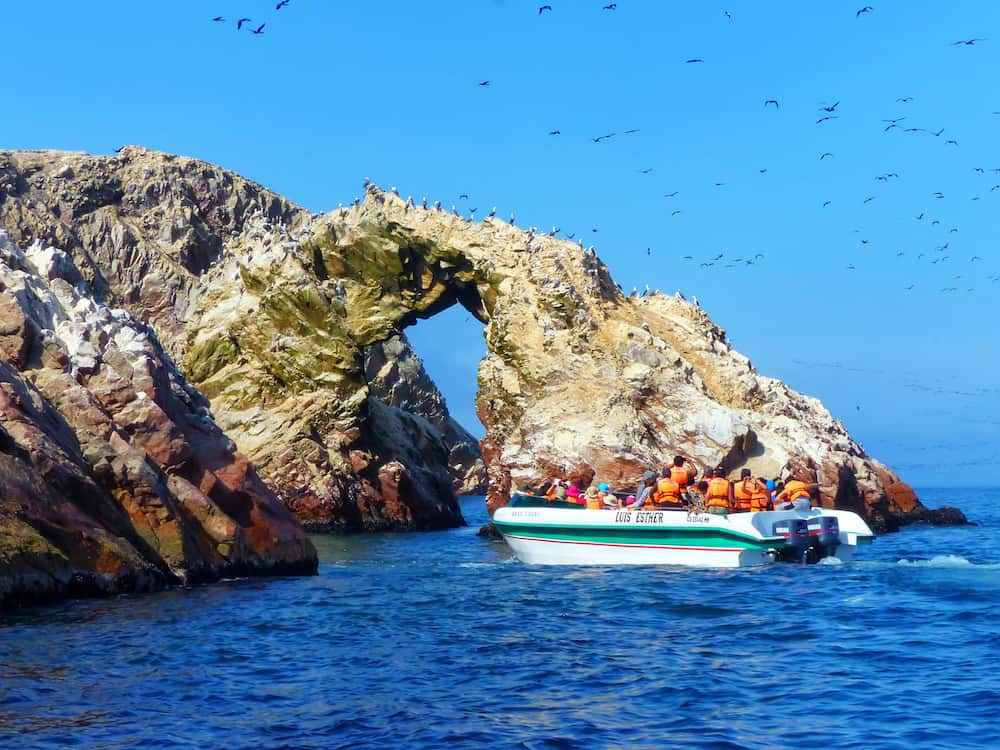
- Visit the Amazon and see the rare pink dolphins and the colourful macaws.
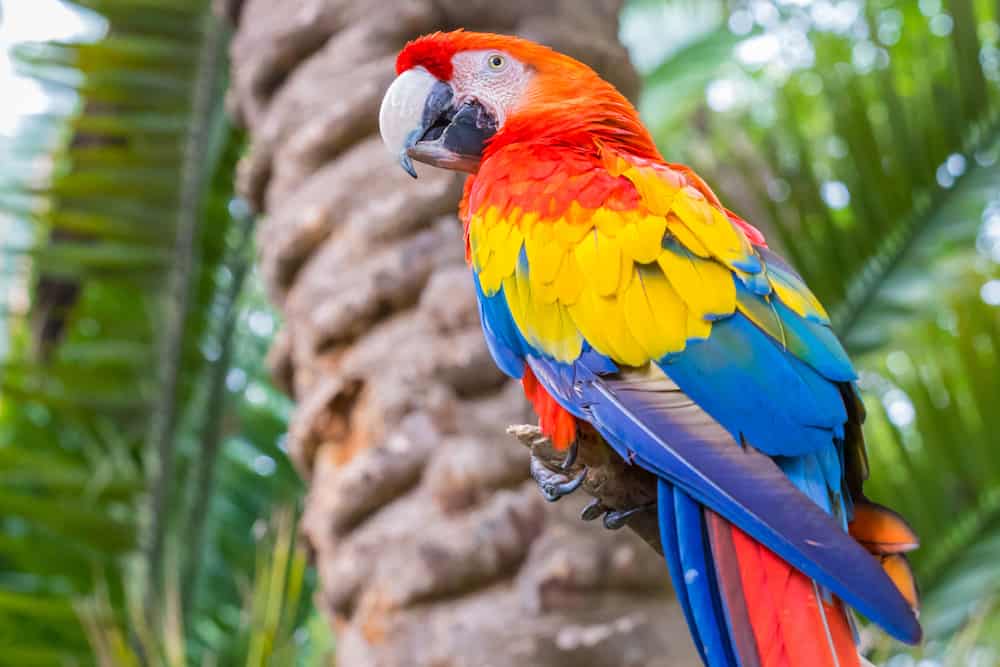
Places to visit in Peru
Nazca Lines
Ica is the gateway to the Nazca lines, hundreds of massive lines converging to form enormous drawings of spiders, animals, birds and geometric figures, which can only be seen from the air.
Centuries ago, the Nazca people carved these lines into the Peruvian desert and these drawings have baffled researchers who interpret the lines as an ancient astronomical calendar or some kind of pagan ritual, or even the work of aliens.
To see the famous desert drawings you must travel to Ica. From Lima you can take a bus to Ica, the journey takes around 4 hours, as the bus leaves Lima the bustling city turns into barren desert with occasional glimpses of Incan temples.
The plane that flies over the lines costs around US $150 per person for a mere 35 minutes but is the only way that you can see the lines as trespass on the desert is forbidden. For those that suffer from airsickness, this flight should be given a miss as the undulating rising and falling movement of the plane is sure to make your stomach turn. Motion sickness pills are highly advisable before getting on the flight.
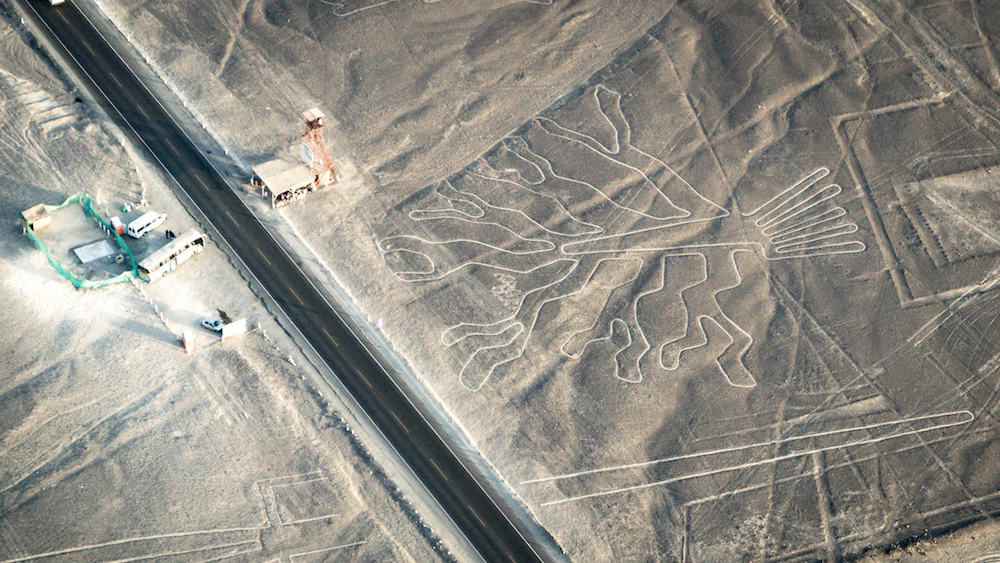
Cusco
To get to Machu Picchu you must first fly to Cusco. The essence of the once bustling capital of the Incan empire can still be felt in this Peruvian town. The city is perched high in the Andes mountains, this UNESCO World Heritage Site sits at 3,400 meters above sea level.
As you walk the narrow meandering streets you can run your fingers along the Incan stone walls of the city and imagine how this street once looked centuries ago. Cusco is the perfect place to get lost in the local markets, see the women scuttling around in colourful traditional clothing.
Most tourists spend only one to two days in Cusco but it is worth staying a little longer. The first day requires some effort to acclimatise to the altitude, eat light meals and drink the local Coca leaf tea to help with altitude sickness, also take it easy as the air is thinner and it can be tiring just to walk around the sloping streets of Cusco.
Take a tour of Cusco’s cathedral to discover how Christianity was adopted by the pagan people of the valley and admire the colourful artisanal products in Avenida de Sol for traditional bags, ponchos and throws as well as Peruvian jewellery.
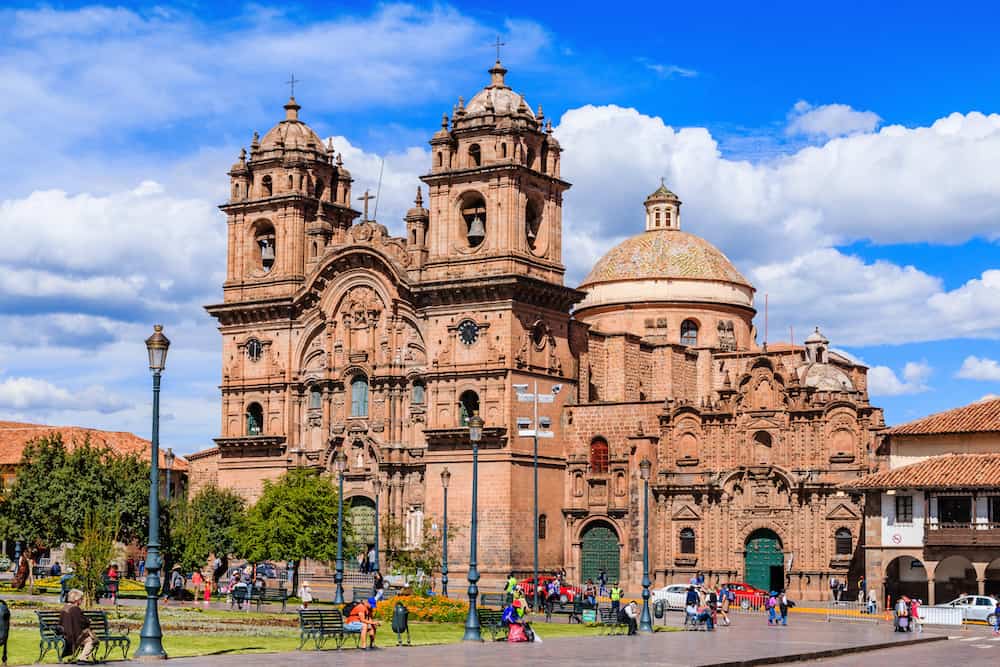
Machu Picchu
The jewel in Peru’s crown, no visit would be complete without seeing this UNESCO World Heritage site. The Incan ruins are a perfect harmony of nature, spirituality and human achievement.
The giant stones that have stood for hundreds of years fit together like a perfect jigsaw puzzle that has withstood the test of time.
Without the use of cement or any adhesive, the incredible structure is held together with nothing more than the weight of the stone itself and is so well-constructed that you cannot even slide a knife between the stones.
To get to Machu Picchu from Cusco you can either do a very costly Inca Trail, which is arduous and costs around US $500 and upwards or you can take the easiest route by train to Aguas Calientes, at the foot of Machu Picchu.
Details of the price of trains is included in the section How to get around Peru. From Aguas Calientes there are numerous buses early in the morning that will take you to the entrance of Machu Picchu.
Prices for the train and the entrance are quite pricey, also remember to book your entrance to Machu Picchu months in advance as they only allow a limited amount of visitors per day, in total 3,800 visitors, the official fees for entrance for 2018 were listed as $47 for entrance to Machu Picchu only or with the additional entrance which allows you to climb Huayna Picchu, $62.
The entrances that include Huayna Picchu are limited to 400 a day and it is well worth it to ascend to the peak to get a bird’s eye view (weather permitting) of the entire Incan ruins.
Machu Picchu is a magical place and you usually ascent at daybreak, as you reach the top you drive upwards through clouds and as the sun rises, the sea of clouds parts and reveals the wonders of the Incan ruins, the sight is so moving and spiritual that you may feel the hairs of your arms stand up and a chill run up your spine.
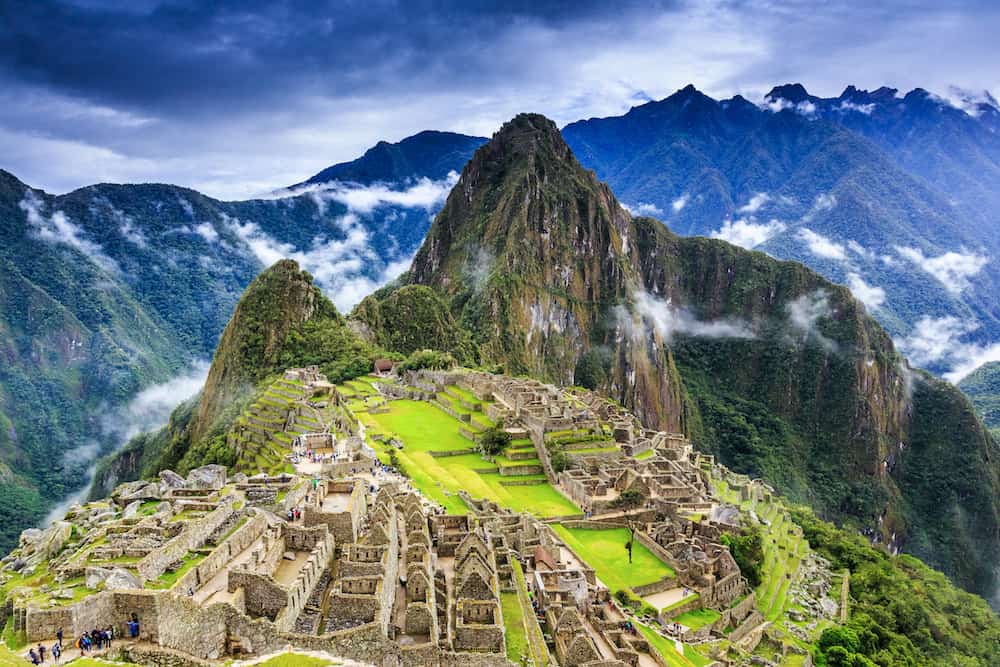
The Sacred Valley
Peru’s famed sacred valley is a journey through ragged mountains, glaciers and earth. With so many things to do it is easy to spend a few days exploring the Sacred Valley.
Here you can visit the Pre-Incan Salt ponds of Maras, home to over 3000 salt ponds that yields the highly prized pink salt. In Moray the beauty of the agricultural terraces is sure to spellbind you.
Here you can also sample the traditional delicacy of Cuy, or guinea pig, which is served in local eateries and is a truly authentic Peruvian dish.
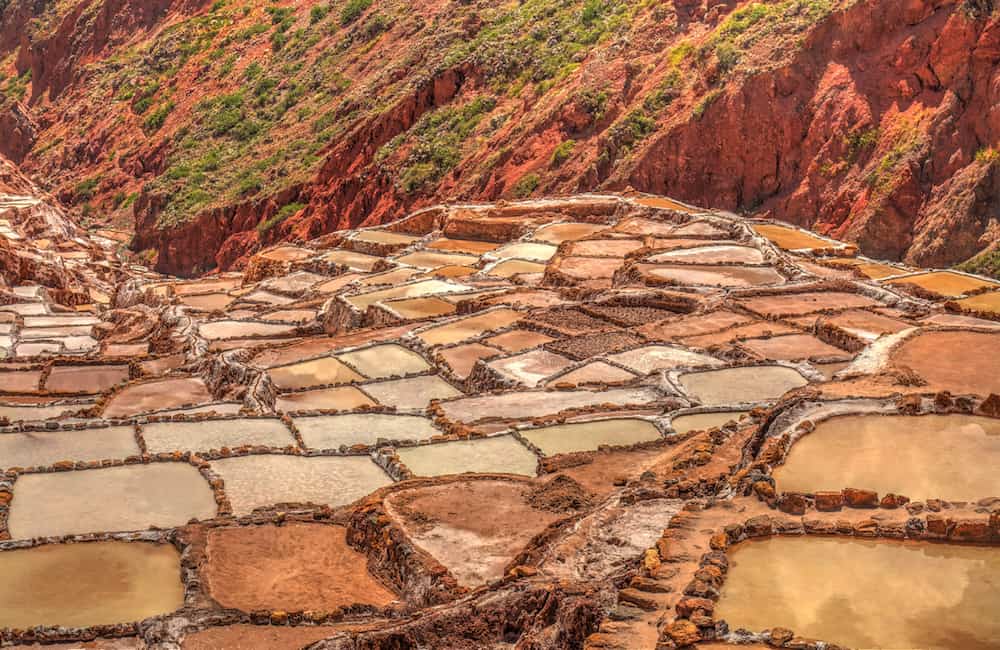
Lake Titicaca
Straddling the border between Bolivia and Peru, Lake Titicaca is one of the highest navigable lakes in the world, sitting at 12,500 feet above sea level.
The beautiful lake’s glistening waters are said to be the birthplace of the Incan civilisation.
From here you can travel to a group of floating islands, 90 in total, composed of reeds. The Uros Islands can be done in a day trip to see a different style of living, here the inhabitants use a barter system to trade in groceries, food and other goods and live in a world completely removed from modern life.
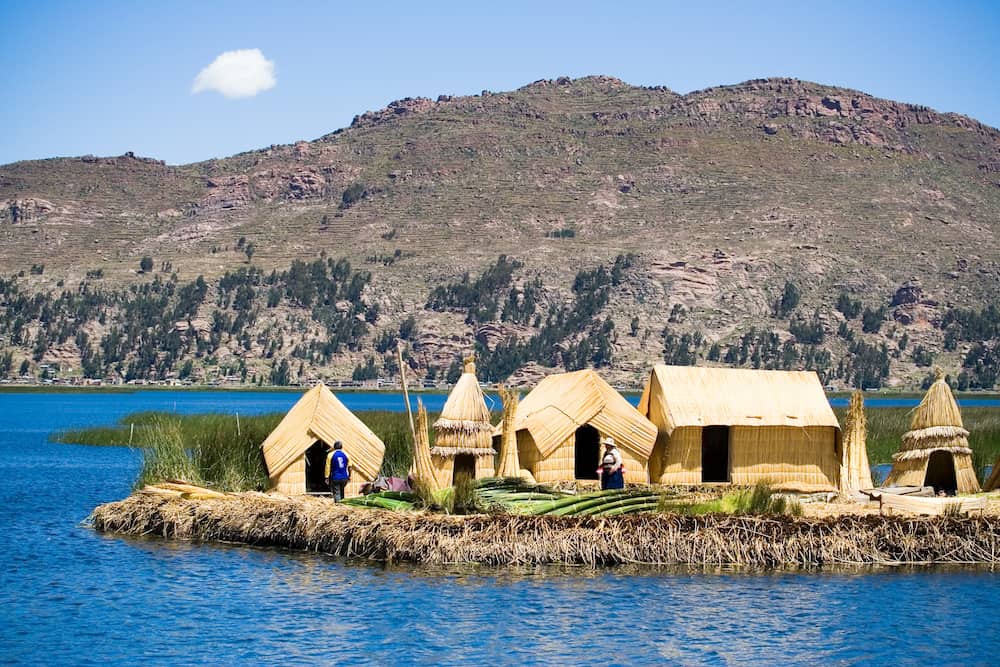
Tours to do in Peru
You can do many guided tours in Peru but here are some of the more unusual ones:
Hike through the Amazon to take in the sights and sounds of the jungle, you can even take a boat cruise to spot the famous and endangered pink Amazonian dolphin.
The best time to visit the Amazon is in their dry season from June to November and a favourite point to begin your jungle adventures is the Parque Nacional Manu, a lush and biodiverse national park where you can encounter an array of wildlife.
Rafting down the rapids of the Sacred Valley
One for the adrenalin junkies out there, you can raft down class III and IV rapids at the Sacred Valley, just a stones throw from Cusco. This guided tour will give you the rush of white water rafting and all gear and safety equipment is provided.
Marcelo Batata Culinary Experience
This four-hour cookery class will immerse you in the world of Peruvian gastronomy, from shopping at the local San Pedro market to whipping up some of Peru’s most popular dishes finished off with a good dose of Pisco Sour. Prices start from US$ 90 per person.
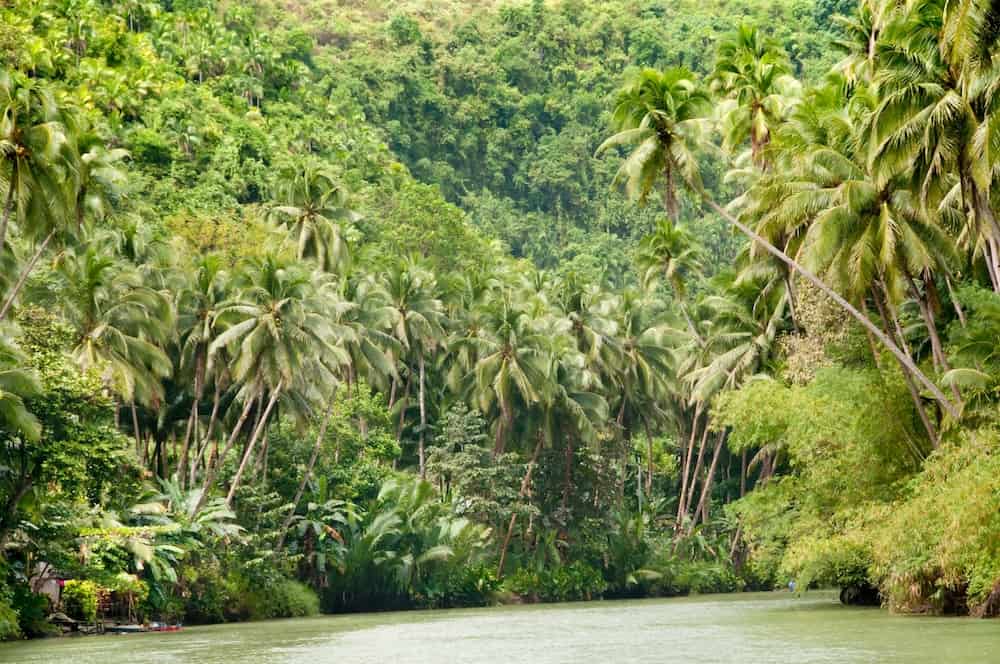
Day trips from Peru
From Lima and Cusco you can easily visit the most popular sites in Peru:
From Lima
From Cusco
What to eat in Peru
- Ceviche – It could be considered the national dish of Peru, ceviche is raw fish marinated in lime juice, the acidity of the lime “cooks” the fish and the dish is served with slices of red onion, large kernels of Andean corn and aji spice. One of the best restaurants to try is Canta Rana in Genova 101, Barranco.
- Causa – Andean potatoes layered with slices of bright green avocado, tuna and hard-boiled egg making up a delicious and filling starter.
- Cuy – Guinea Pig is a traditional dish in Peru and is often served roasted. For those with a taste for adventure and strange and unusual dishes, this is one
- Lomo Saltado – Before Asian Fusion cuisine became fashionable, Chinese immigrants came to Peru looking for new opportunities and this hybrid beef stirfry embodies the fusion of Peru and China and is one of the most popular chifa dishes around.
- Aji de Gallina – Shredded chicken in a rich creamy sauce of walnuts, cheese and aji Amarillo, served over boiled rice or potatoes.
- Anticuchos – Grilled hearts. Don’t be put off by the thought of eating hearts, alpaca and beef hearts marinated in garlic, cumin, vinegar and aji roasted over an open fire and served on skewers are incredibly delicious.
- Sanguche de Chicharron – This is a typical Peruvian sandwich that many Peruvians have for breakfast and it makes for a heavy meal, roasted shredded pork shoulder marinated in a flavourful broth, served with purple pickled onions. One of the best is La Lucha Sangucheria in central Miraflores.
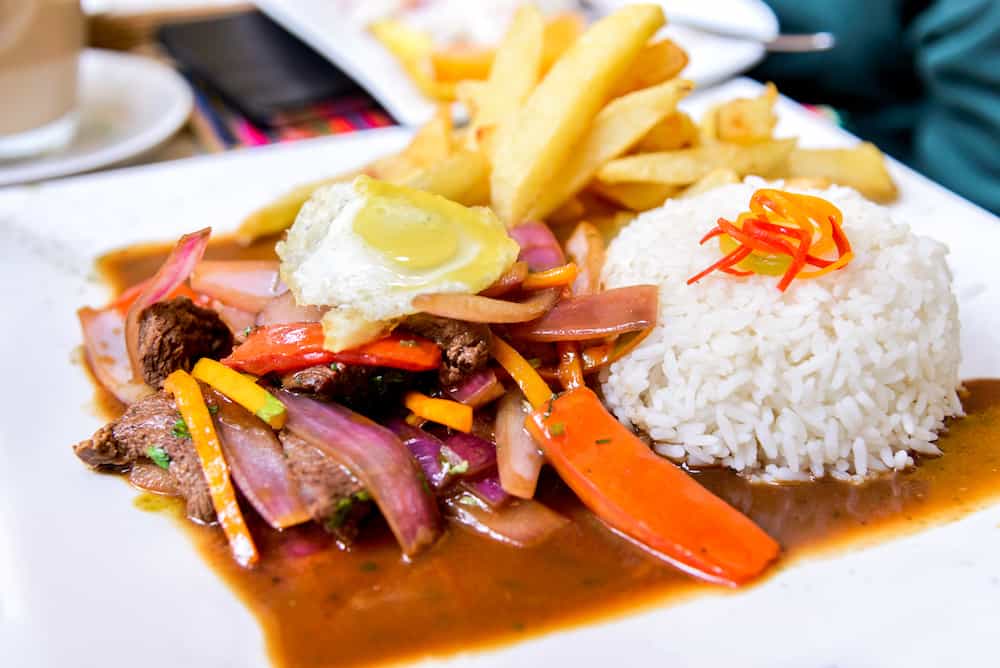
Recommend budget tours in Peru:
- Machu Picchu Day Trip from Cusco
- Nazca Lines Tour from Lima Including Lunch
- Amazon River Full Day-Trip from Iquitos
- Rainbow Mountain Day Trip
- Uros and Taquile Islands by Fast Boat
- 5-Hour Private Tour: Highlights of Lima
- Cusco City Sightseeing Tour
- Peruvian Cooking Class Including Local Market Tour and Exotic Fruit Tasting
- Cusco Rafting and Zipline Adventure
- Humantay Lake Full-Day Hike from Cusco
- Maras, Moray and Chinchero Private Day Trip from Cusco
Get your guide is a Great company, that often offers heavily discounted tours! Check out a few options below:

If you’d like to save it for later, please save it to Pinterest.
